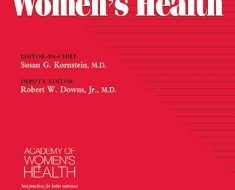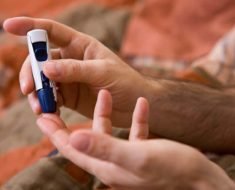It’s been one year since The New York Times published an explosive article detailing the sexual abuse allegations made against film producer Harvey Weinstein. Famous men have been accused of all kinds of sexual misconduct before, of course. But this time, the Weinstein story struck a raw nerve with women, and a formidable movement was born.
Though #MeToo was started by activist Tarana Burke in 2006, the hashtag surged to the forefront of the public consciousness over the last 12 months. Thousands of women continue to use it to share (some for the first time ever) their own stories of being sexually harassed, abused, and assaulted by men whose actions went unpunished, while they felt silenced and shamed.
Since then, well-known figures in entertainment, politics, and business have been publicly called out for a wide range of sexual misconduct. Survivors who once thought it was their fault when a boss groped them or a date assaulted them realized the power of speaking out—and that they were not alone.
Here, 6 sexual abuse survivors open up to Health about the personal experience that made them decide to add their voices to the #MeToo reckoning, and how this movement that continues to gain strength and power has transformed their lives.

Ally Coll Steele, 32: “I launched a nonprofit to end sexual harassment”
“When I was 18, I interned in a senator’s office. It was a mostly great experience, but toward the end of the summer, the senator groped me during a conversation in front of other people. My reaction was embarrassment. I worried people would think badly of me. But as I talked to others, I realized sexual harassment in his office was an open secret. and the message I got was that I should simply move on.
As the years passed, I mostly did. I went to law school and joined a Washington law firm. Then last October, the Harvey Weinstein news broke. I was inspired by the courage of the actresses who came forward after keeping quiet for so long. Days later, when a reporter investigating sexual harassment on Capitol Hill called because they’d heard I had my own #MeToo story, I felt ready to tell it.
I was glad I did. But soon after the story appeared in the Washington Post, I was shocked to learn that my law firm had been spying on Weinstein’s alleged sexual assault victims in order to discredit them and stop their stories from ever being told. I quit my job.
If I’d told my story before #MeToo took off, I’m not sure it would have had the same impact. Realizing there was an opportunity for lasting policy change to come out of this, I launched the Purple Campaign, a nonprofit whose mission is to end workplace sexual harassment through better laws and stronger corporate policies.
Yes, it will take a lot of education and advocacy to get us there—and it can be frustrating to explain things that should be obvious. But I’m still hopeful about the commitment I see from leadership who want to make changes. I don’t regret speaking out, and I have never worked harder than I do now.”

Ali Bradley, 33: “I’ve gone from victim to survivor”
“When Rose McGowan first came across my news feeds last year, I was honestly angry at first. I was angry that I finally had to deal with the pain I’d been secretly carrying around for nine years: At age 23, after coming to New York City for what I thought was a movie audition, I was drugged and raped.
I’m now a news anchor, and the #MeToo movement gave me the strength to share my story of survival on live television. I was motivated by the idea that maybe my truth would help just one person understand they aren’t alone and it’s not their fault—that there isn’t anything they could have done differently. And if what I said resonated with one person, it was worth my digging up old memories and broadcasting them live.
The response I received was overwhelming in the most beautiful way. Messages poured in from complete strangers who shared their own truths with me, including one man in his late 60s who told me about the horrible assault he endured. He hadn’t yet told his own family. His bravery was inspiring. I was so honored and humbled.
Since sharing my story, I have had more frequent flashbacks, but I work weekly with a therapist. My husband and family continue to support me, even when I’m having a rough week—or month. Sharing my story helped me transition from victim to survivor. To me, the difference is power. I’m now in control of how I feel. I know what happened wasn’t my fault.”

Hannah Saunders, 30: “I’ve stopped trying to erase what happened to me”
“In college, I was raped by a man I met at a bar. When I tried to report the rape or tell those close to me, I was met with questions and comments that made me feel guilty and ashamed for what happened and for what I did to protect myself. The details of the assault didn’t fit the narrative for a successful court case, and ultimately, the district attorney opted not to pursue it. I thought that ‘moving on’ meant I should stop talking about it as well. I carried the shame of my experience for years.
#MeToo brought up really painful memories for me. I looked at others’ experiences and compared them to my own. In the beginning, I didn’t believe mine mattered. But as I read and listened to survivors, I no longer felt like my story had to fit into the box that the detective or the prosecutor gave me to be considered worth telling. I saw a new way to tell it, with all of its complexity and inconvenient details.
I started therapy at Safe Horizon, the nation’s largest victim service agency. I used to believe that healing was never thinking or talking about the assault again. I imagined that I could just figure out how to erase what happened from my memory. Instead, I developed skills to cope with my anxiety, and to identify and address the ways in which the trauma I’d experienced was still affecting me.
I feel grateful that so many survivors have come forward to tell their stories. I benefited from their bravery, and this makes me hopeful that other survivors who have been silenced like I was can feel seen and heard as well.”

Sarah Walsh, 41: “I've found my voice”
“Two years ago, a vendor I worked with at the coffee shop I own sexually harassed me. After a meeting one day he suddenly suggested I should give him oral sex in exchange for some equipment; he said it in front of customer and employee. A few days later he came by and forced open the door of my shop, came in, and refused to leave. I severed my business relationship with him and blocked him on social media, but he sent me an email that he was a nice guy and I was unreasonable.
So I filed a police report and took him to court. Despite the judge arguing, ‘It’s not sexual harassment. You just didn’t like what he said,’ and ‘Our president says worse things than that,’ he was found guilty. A few months later, I found out he’d secretly appealed to the judge. All criminal charges had been dropped.
When #MeToo started right after that, I was riveted. I felt so hopeful. I hadn’t gone public yet with what I’d gone through, but once I did, I realized: there are a lot of us. My friendships with women changed. My closest soul sisters are now all women who’ve gone through similar experiences. (I also have guy friends who are learning to be allies.)
Yet today, despite having a vibrant support network, I feel so alone—and not just because I’m dealing with another stalker who has harassed four other women in my community as well. The Kavanaugh hearings have been a flashpoint for me. Dr. Ford’s story was supposed to make a difference. Instead, we’re discovering that the system is broken and demoralizing. Justice is still not happening. The cultural pushback we women continue to get is to be quiet and protect abusers from our feelings. But the value of #MeToo is that I’ve found my voice, and I’ll continue speaking up.”

Marissa Korbel, 37: “I gathered the strength to stand up to sexual misconduct at work”
“I was molested by a neighbor at age 5, but strangely, that’s the least traumatizing thing that’s happened to me. I’ve had a string of inappropriate relationships, including with my high school teacher when I was 16 and he was in his 40s, and pretty bad workplace sexual harassment too.
Last fall, I was working at a small start-up. The founder had always been borderline inappropriate with me, talking about the women he dated and treating me like his relationship therapist. But at my performance review set up to discuss a promotion I’d been promised, he kept giggling and looking at his phone. ‘I’m really kinky and my friend can’t believe there’s nothing I haven’t done sexually,’ he said, then went on to describe the one sexually explicit act he hadn’t tried.
If this hadn’t aligned with #MeToo, I might have excused or minimized his behavior. But #MeToo was a catalyst for me. I thought if these women can be brave enough to out Harvey Weinstein, then I can speak up. I told my boss that he shouldn’t talk like that again to me or anyone else who worked with him. I cried throughout the conversation, which sucked. Other women understand crying. Men think that they’ve hurt you or you want to be taken care of. I wanted this guy to stay the hell away.
My boss seemed fine with what I told him, but in our small office of 7, it became obvious he was pissed. The promotion I was supposed to be up for was suddenly not in the budget. When things hadn’t improved after 5 months, I left—and filed a lawsuit.
Recently, the company resolved the issue. It doesn’t make up for everything, but for me, it’s an important victory. I have a long history of feeling victimized and not being able to stand up for myself. Things that have happened to me never felt ‘that bad’ or worth speaking up about. #MeToo reminded me it doesn’t have to be that bad. We don’t have to wait until the worst thing happens. I’m thrilled I spoke up. And now, I work at a law firm that helps survivors.”

Flannery Houston, 37: “I’ve turned my trauma into positive action”
“Three years ago, I was sexually assaulted by someone I was dating after I told him repeatedly I didn’t want to have unprotected sex. Afterward, I lost days. I know that time passed, but in the month that followed, I might remember a total of 3 or 4 days—and not even full ones. I experienced conflicting emotions, sandwiched between anger and fear. Guilt and shame were a big portion as well.
I did not report my assault. I did tell a few friends because I trusted them, and I felt like I needed them to hold pieces of my trauma for me until I could deal with it in a healthy and productive manner.
When I first heard about #MeToo, I was apprehensive. Some celebrities used strong language that made it feel like there would be little room in the movement for survivors who didn’t want to come forward. But that narrative quickly changed and it became crystal clear that this movement was going to be much bigger than one serial assaulter.
Though my experience is unique to me, I’m become part of a community that is millions strong, very real and very human. So many individuals from all walks of life and all ages feel safe and strong enough to stand up and say, ‘I, too, have an experience.’ I’ve used that to remind myself how important it is to stand up and fight back in the hopes that we can alter the path forward.
Therapy was not the full solution to me, and neither was talking to other survivors. Though both were helpful, the part of my healing process that was missing was doing something to help others. Now, as a volunteer for RISE, a national civil rights nonprofit, I’ve helped craft a Survivor’s Bill of Rights that became law in California. A New York bill is on the governor’s desk, and I’m continuing to help pass legislation in states throughout the South.
I’ve been given the opportunity to turn my trauma into positive action that can protect others. For me, that’s more healing than anything.”
To get our top stories delivered to your inbox, sign up for the Healthy Living newsletter
Source: Read Full Article





